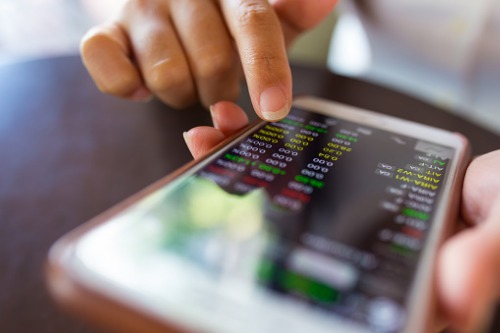Given elevated volatility in the markets, easy access to stock investing could be a mixed blessing

For inexperienced investors, trading in the stock markets could be more like gambling than investing. And with commission-free trading apps within reach of more retail investors than ever, that issue of risk is coming into sharper focus.
“With simple designs, alerts and the ability to win free shares for recruiting friends, [stock-trading apps] have drawn millions of users who are typically young, new to the markets and experiencing volatility for the first time,” reported the Wall Street Journal. “Users say they check their app as often as their social-media accounts, trading to kill time with the hope of easy riches.”
Critics point to a danger that echoes the tech-stock boom of the early 2000s. Through newly introduced electronic brokers, many first-time investors chased after internet and biotech stocks only to see them go bust.
“[F]ree apps and this bull market are bringing the ability to make foolish decisions to an ever-broader swath of people,” warned Ben Edwards, business and securities law professor at University of Nevada Las Vegas.
Last year’s stock-market volatility, which arose amid worries over US-China trade tensions and the Federal Reserve’s rate-hike path, brought the S&P 500 down by 14% in the fourth quarter. Since then, the index has rebounded, but volatility levels have remained up — as has investors’ engagement with trading apps.
The dominant e-broker in the US, Charles Schwab, announced it had a record high number of brokerage clients in December. And the founder of M1 Finance, a competitor, said it hit its highest-ever levels of net inflows and buying in the final days of 2018. Robinhood, another trading app, has accumulated around six million clients, one million of which joined since last July.
Lower technological and cost barriers offer more people opportunities at investment returns, long-term investment gains can be eroded when investors trade in reaction to short-term price swings. Noting that “trading is a zero-sum game” that puts individuals against professionals, University of California Davis finance professor Brad Barber said that trading apps can be a useful access point to cheap, diversified index funds that are ideal for long-term investing.
But they can also spur people into stock-picking behaviour that doesn’t build wealth or improve diversification. In a September interview with the Journal, Robinhood co-founder Baiju Bhatt said its users with positions check the app an average of 10 times a day, with active traders tending to favour low-price stocks in the neighborhood of US$1 to US$5. “Because we’re free, we’re the only place where you can day trade stuff like that,” he said.
Detractors are quick to note that commission fee trading isn’t actually free. Most e-brokers sell client orders to high-speed traders, and then pass some of that profit back to clients through better prices for trades, resulting in a slightly lower share price for clients.
“Robinhood appears to be taking more cash for selling client orders than rivals, regulatory filings show, and it is unclear whether Robinhood users receive the corresponding savings,” the Journal said.
Follow WP on Facebook, LinkedIn and Twitter



